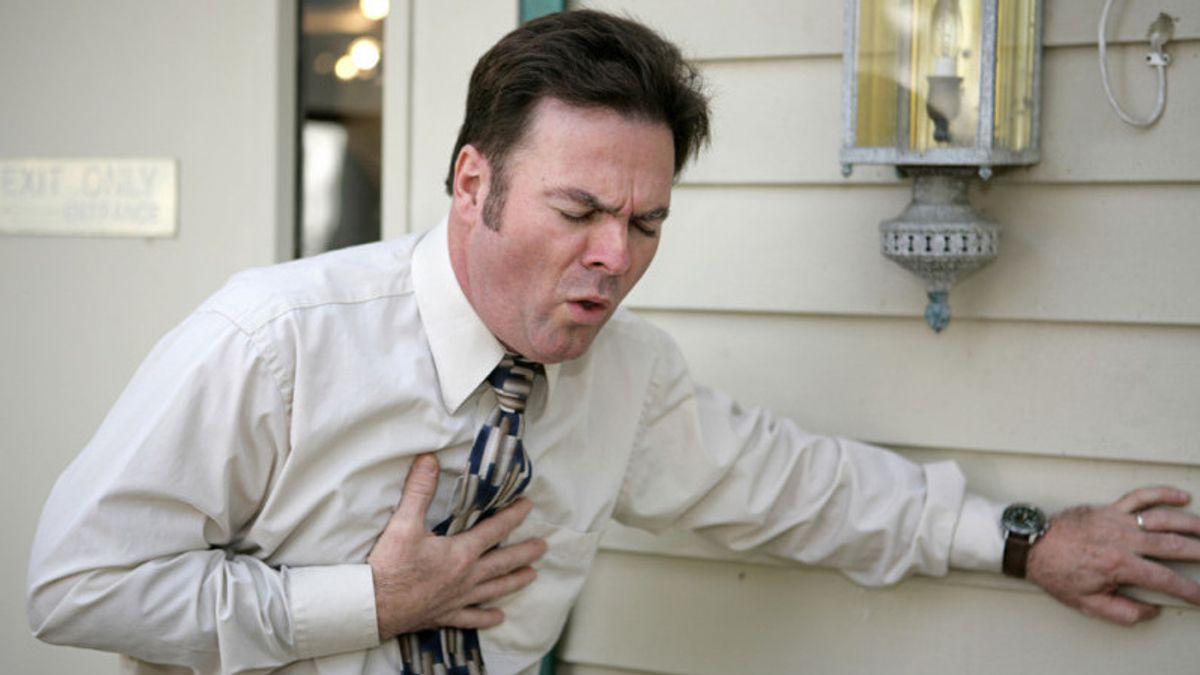JAKARTA - The damage caused by a heart attack can be repaired with a new biodegradable gel, according to experts at the University of Manchester, UK.
Backed by the British Heart Foundation, a team of experts has created a substance that can be injected directly into a beating heart. The gel acts as a scaffold for the injected cells to grow new tissue.
In the past, when cells had been injected into the heart to reduce the risk of failure, only 1 percent could remain in the heart and survive. Meanwhile, the new gel is made of amino acids called peptides, which are the building blocks of protein.
This gel behaves like a liquid when under pressure as the peptide disassembles, which is the ideal state for injecting it, and then the peptide reassembles, making it solid.
Then, this gel holds the cells in place as they transplant into the heart. For the results to be successful, a good blood supply is essential for the injected cells to develop into new tissue.
To prove that the technology could work, researchers demonstrated that the gel could support the normal growth of heart muscle tissue.
When they added to human cells a gel that had been reprogrammed into cardiac muscle cells, they were able to grow it in a dish for three weeks and the cells started beating spontaneously.
Researchers also tested the gel on healthy mice. They injected a fluorescent tag with a gel into their liver, and found that the gel remained in the liver for two weeks.
An echocardiogram, or ultrasound of the heart, and an electrocardiogram, which measures the electrical activity of the organs, performed on mice confirmed the safety of the gel.
To gain more knowledge, the researchers plan to test the gel after the mice had a heart attack, to see if they developed new muscle tissue.
The study was presented at the British Cardiovascular Society Conference in Manchester.
"We have come so far in our ability to treat heart attacks and today more people are surviving," said Prof James Leiper, associate medical director at the British Heart Foundation.
"However, it also means that more people are surviving with damaged hearts and are at risk for heart failure."
"This new injection technology harnesses the natural properties of peptides to potentially solve one of the problems that has hindered this type of therapy for many years," he explained.
"If its benefits are replicated in further studies and later in patients, this gel could be an important component of future treatments to repair the damage caused by heart attacks."
Meanwhile, Katharine King of the University of Manchester, who led the research, said the heart has a very limited ability to repair the damage it has suffered.
"Our research has looked at ways to work around this so we can keep the heart in a healthier place for longer," said Dr King.
"Although it is still early days, the potential of this new technology in helping to correct heart failure after a heart attack is enormous."
"We believe that this gel will be an effective choice for cell-based therapy in the future to help regenerate damaged hearts," he concluded.
The English, Chinese, Japanese, Arabic, and French versions are automatically generated by the AI. So there may still be inaccuracies in translating, please always see Indonesian as our main language. (system supported by DigitalSiber.id)













